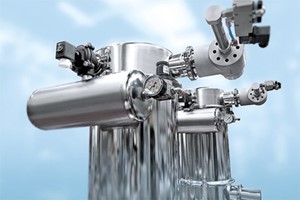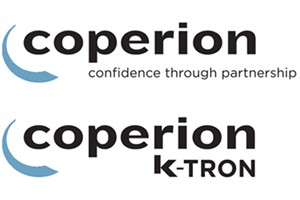FEATURED ARTICLES
-
Valves And Control Heads: A Combination To Facilitate The Next-Generation Of Plants
Maintaining sterile process conditions is a vital but daunting task for manufacturers. Separation processes like filtration and chromatography place considerable demands on sterile systems and must be done properly to ensure the purity of media.
WHITE PAPERS & CASE STUDIES
-
Modular Facility Design: A Cost-Effective Option In The Post-Blockbuster Drug Era
The pharmaceutical industry has undergone a sea of change in recent years as manufacturers have adapted to the end of the era of large-volume production of mass-market blockbuster drugs. With firms now focusing in on subpopulations of patients, there is a need for lean, adaptable facilities that can switch quickly between multiple products in multiple formats. Modular facilities can meet this need. While not a panacea, for the right project characteristics, ‘Modularity in Design’ can deliver significant and quantifiable long-term value.
-
Medication Errors -- A Threat To Patient Safety: Mitigating Errors With Tablet Appearance
Medical prescription drug errors by doctors, pharmacists and patients account for 1.5 million incidences of sickness, injuries or deaths in the U.S. each year. By Jay Anbil and Steve Yoder
-
Film Coating For Pediatric Oral Solid Dosage Forms
From a recent survey conducted within the pharmaceutical industry, by Colorcon, it was confirmed that oral solid dosage forms are a preferred choice for formulation of pediatric medicines.
-
Accelerating Lipid-Based Drug Formulation
Formulation scientistsmust develop and validat robust systems that address the challenges posed by increasingly complex drug candidates, in ever shortening time frames.
-
When Capsules Fall Apart, Who Is To Blame?
Capsule integrity is a given for established manufacturers with impeccable reputations. Consumers, however, know from experience that not all capsules are made equal. Some can be difficult to extract from the blister pack. Others may have gel caps with cracks or, even worse, ruptures that allow the ingredients to spill out. Is this a manufacturing problem? Or has R&D neglected to implement a fool proof test methodology for evaluating capsule stability? Compression and tension testing offer a technical approach with quantifiable results that can be used to assess capsule performance.
-
Recommended Mixing Equipment For Fish Oil Supplements
High shear mixers are used to prepare emulsions under 10,000 centipoise. The single-stage design features a four-blade rotor turning at tip speeds around 3,000-4,000 ft/min.









